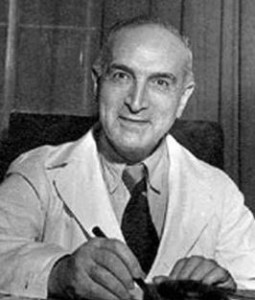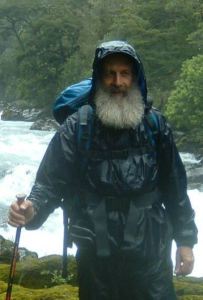Ernst Gräfenberg (1881-1957) was born in Adelebsen, Germany, where his father was a successful businessman and head of the Jewish community. Gräfenberg studied medicine and earned a Ph.D by the time he was just 23. He first worked as an ophthalmologist, then shifted his focus to gynecology. At the same time, he did important research on cancer, presenting a theory on metastasis. Following his World War I service as a medical officer, for which he was decorated with an Iron Cross, Gräfenberg became the chief of gynecology at a Berlin hospital. He did simultaneously did research on reproduction at Berlin University. In 1929, he invented the first modern contraceptive intrauterine device (IUD), then called the “Gräfenberg ring”. Today, IUDs are the most widely used form of female contraception, with nearly 200 million users around the world. Unfortunately, the Nazis forced Gräfenberg to give up his posts in 1933. Despite pressure to leave Germany, he continued his gynecology practice, thinking that he would be safe since many of his patients were the wives of Nazi officials. Nonetheless, Gräfenberg was arrested and spent three years in prison. It wasn’t until 1940 that he was finally able to flee to the US (through Siberia and Japan). There, Gräfenberg continued his studies on female physiology. Among other things, he described a little-known erogenous zone that was later named after him: the “Gräfenberg spot”, better known as the “G-spot”. He also did important work on egg implantation and pathology. The effects of Parkinson’s Disease forced Gräfenberg to retire in 1953, and he passed away several years later in New York City.
Words of the Week
Humility is not a question of thinking less of yourself, it’s a question of thinking of yourself less.
– Larry Bossidy



